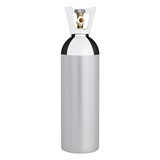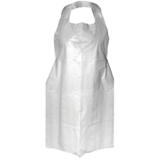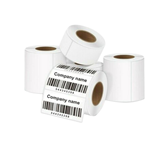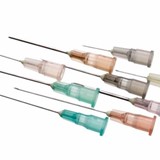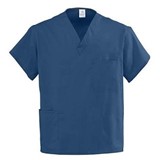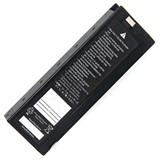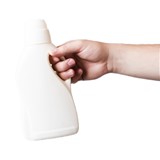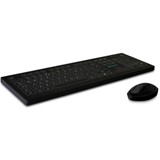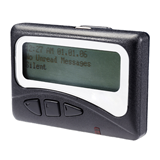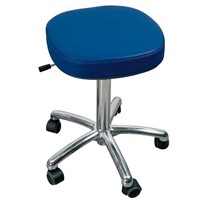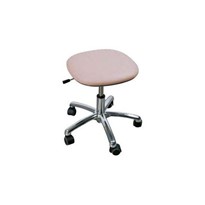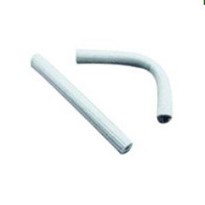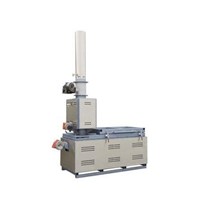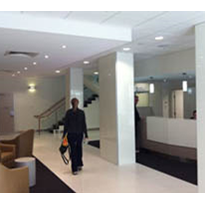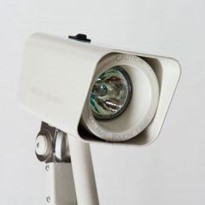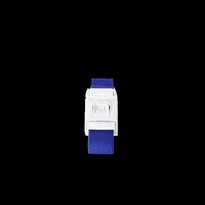At the moment, COVID-19 has emerged as one of those diseases that caused major disruption in the health sector all over the world, but that is not to say that it is the only infectious illness; there are several others like the flu, hepatitis B or Ebola virus. The emergence of deadly ailments has forced people to rethink how they maintain their hygiene and its importance. Proper washing of hands and sanitisation of equipment and places have been emphasised to curb the spread of viruses.
When running a dental clinic, hospital or veterinary, you must keep it clean and hygienic. This helps battle against bacteria, germs, viruses and other disease-causing organisms. The medical disinfector is one device that helps in this particular situation. A medical disinfector is a machine meant for general medical reasons to decontaminate, clean and dry surgical instruments, anesthesia equipment and several other medical devices. Medical disinfectors are very important, as we shall see later in this article, it effectively benefits you as a business owner and your patients, who are now guaranteed quality healthcare.
Why Does My Hospital Need a Medical Disinfector?
The importance of medical disinfectors in your hospital cannot be emphasised enough. These devices come in handy as you focus on delivering good services to your patients. Using this machine will save time as you will not have to clean the equipment by hand or dry it. Many know that dentists, doctors, vets, and those involved in the medical profession do not have enough time. Medical disinfectors help by offering a standard level of cleaning that is effective and efficient. As it does the cleaning, you can focus on providing healthcare rather than washing; it is incredibly exhausting to do both, and the chances of doing excellent work in both can be challenging.
As stated earlier, viruses are becoming prevalent with time due to changes in lifestyle and other environmental factors; therefore, you should not take your practice’s improvement of health and safety lightly. When you thoroughly clean your equipment using the medical disinfector, you subject them to intense heat for a prolonged period. Consequently, the bacteria is killed, protecting the health of your patients and staff. Additionally, you can safely store the equipment in the medical disinfector instead of being handled by your staff, resulting in injury.
How Does Having a Medical Disinfector In My Hospital Benefit, The Vulnerable Patients Within The Hospital?
We can understand the benefit of a medical disinfector by familiarising ourselves with how it functions; that way, we can know what makes it extremely useful instead of just washing the equipment in a hospital. All medical disinfectors use heat to disinfect instruments to be reused thoroughly.
The machine starts by cleaning the equipment from within, by the pre-rinse, which removes any dirt or stain; this step is done using cold water. In the next stage, you will use a detergent to eliminate any residue to ensure it is properly cleaned. Disinfection is the next step, whereby heat levels reach a minimum of 90 degrees Celsius. The user can set the time for this cycle. This is a crucial step since high heat for a prolonged period effectively kills bacteria, and the equipment is safe to be used again. The last and final process is the drying part; after that, you can reuse the equipment.
The intense cycle clearly indicates how effective the medical disinfector is in killing any disease-causing organisms like bacteria. Many patients visit your hospital, and it is not easy to tell who is more vulnerable than the other; one can easily get an allergy or infection after coming into contact with dirty equipment. Medical procedures usually involve contact by a device or a surgical instrument with a patient’s delicate organs, like the sterile tissue or mucous membranes that can be infected, leading to other ailments. Pathogens can gain access to the body leading to serious infections. If a piece of equipment is not properly disinfected, it not only carries the risk of infecting a single individual, but the risk of person-to-person transmission is very big as well.
Medical disinfectors are essential in ensuring that medical and surgical equipment do not transmit infectious pathogens to vulnerable patients admitted to your hospital. Therefore, having a medical disinfector helps your patients by effectively cleaning instruments used to treat them. In a hospital, you are also in contact with these medical instruments, and you will likely have to touch your patient, for instance, when offering them an injection or touching a swollen area.
What Are The Benefits Of Having a Rhima Washer Disinfector?
(What Are The Benefits To My Customers, How Will This Help Increase My Overall Business)
If you are looking to find a dishwasher that fits all your needs and demands in your business, Rhima is the best place to find one. We strive to produce high-quality dishwashers that work effectively and efficiently for a very long time. They will offer you optimum performance leaving your dishes clean and sparkling.
Furthermore, we always listen to what you want and that way, we will ensure that the dishwasher you get fits that criteria. Rhima’s team of professionals works tirelessly to ensure that you get dishwashers that offer you continuity and reliability. Our staff are specialists who understand the market properly and are capable of giving you excellent services that will leave you satisfied with a dishwasher suitable for your business needs.
Furthermore, Rhima dishwashers are equipped with the latest technology by having developed features that will have you amazed by easing your washing responsibilities. Dishwashers require proper care and maintenance to work perfectly and meet the heavy demands of your business. With this in mind, we offer regular maintenance that we can schedule on a contract basis. To add to this, we conduct safety, hygiene and temperature tests regularly.
How To Decide If a Medical Disinfector Is The Right Thing For Our Ward
Deciding on the most appropriate medical disinfector can be a challenging task to do, considering that there are several factors that you have to think about to go for a suitable choice that ticks all your needs. The following is a list of aspects that you can go through before getting a medical disinfector for your ward:
- Size of the ward – Medical disinfectors vary in size, with some being bigger than others, and therefore one will have a definite impact on the available room. If your ward is small, you should use a small disinfector that will not take up much space.
- Affordability – The price of medical disinfectors varies because they have different features, with the most complex ones being more expensive. As you decide on this, ensure that you get one that meets your budget and will still serve you properly.
- Efficiency – An excellent medical disinfector should be efficient in that it will make a difference in your service delivery by working quickly and using the available resources in the right amount.
- Ward Equipment – Medical disinfectors help meet the needs of a busy ward, especially if it’s big and has many instruments that need to be disinfected regularly. It is not worth purchasing a medical disinfector when you have only a few pieces of equipment that need to be washed.
Service Support
Validation and Preventative Maintenance Testing: This is Rhima’s thermal validation testing that utilises the most advanced data acquisition and reporting available software to validate the entire process of your washer-disinfector.
The qualified Rhima technicians provide you with thermal validation and preventative maintenance testing that ensures your medical washer disinfector machine complies with the required standards.
The Preventative Maintenance and Validation agreement has the following components:
- Safety checks
- Automatic control test
- Cleaning efficacy test
- Calibration of machine instruments verification
- Thermometric test
- Validation report
This contract also includes 25% off the list price of spare parts, zero labour charges for the first two hours and other additional benefits.
Preventative Maintenance and HACCP testing: Temperature checks with a calibrated thermometer, residual protein swabs and full maintenance on the machine are some of the services offered here.
Rhima technicians will service and maintain your dishwasher at its highest performance level and reduce the risk of an expensive breakdown. Some of the benefits of Rhima preventative maintenance include:
- Electricity savings
- Savings on total maintenance costs
- Savings on water
- Low detergent usage
- It prolongs the lifespan of the equipment
- Offers insurance against unexpected major repairs
- Unplanned costs and stoppages are eliminated
FAQS
What is medical disinfection?
Medical disinfection is the process of removing pathogenic microorganisms on inanimate objects with the exception of bacterial spores. This process is usually accomplished by using liquid chemicals or wet pasteurisation in health care settings.
What are the three types of disinfection?
- High-level, used for semi-critical items except dental, means those that come in contact with mucous membranes or non-intact skin.
- Intermediate-level is for some semi-critical items and non-critical items.
- Low-level for non-critical items that come in contact with intact skin.
What does hospital disinfection mean?
It is the disinfection of medical instruments in a hospital facility.
What are the two methods of disinfection?
There are two methods of disinfection: chemical and physical. The chemical methods make use of chemical agents and physical utilise physical agents. The most commonly used chemical agent is chlorine; others include the halogens bromine, iodine alcohols, soaps and detergents. Hydrogen peroxide, ammonium salts and many others. The physical agents of disinfection include the use of ultraviolet light, electron beam, gamma-ray irradiation and heat.
What is an example of disinfection?
The application of alcohol on a wound to prevent the growth and spread of bacteria.
Is disinfectant a medical term?
Yes, it is a medical term that means the process used on non-living objects to eliminate germs like viruses, bacteria and other microorganisms that cause diseases.
What is the most powerful disinfectant?
The most powerful disinfectant should be capable of eliminating as many pathogens as possible. There are many disinfectants available that can effectively work for you, for instance, the combination of hydrogen peroxide and peracetic acid or Quaternary Ammonium.
What is the most commonly used hospital disinfectant?
The most common hospital disinfectant is hypochlorite. Alcohol, bleach, hydrogen peroxide and quaternary ammonium compounds are considered the best disinfectants in hospitals and therefore are commonly used.
What is the most effective disinfectant?
Bleach is a very strong and effective disinfectant. The active ingredient is sodium hypochlorite, which is effective in killing bacteria, fungi and viruses.
How will you describe a hospital-grade disinfectant
A hospital-grade disinfectant is a disinfectant that is registered with the Environmental Protection Agency(EPA) as a hospital-level disinfectant that performs the functions of bactericide (kills bacteria), virucides (kills pathogenic viruses), and fungicides (kills fungi).
What disinfectant is used in hospitals?
There are five main EPA-registered disinfectants used in hospitals: Accelerated Hydrogen Peroxide, Quaternary Ammonium, Hypochlorite, Phenolics and Peracetic Acid.
What is the method of disinfecting?
Chlorination, chloramines, ultraviolet light and ozone are some of the primary methods of disinfecting.
What is the difference between sanitiser and disinfectant?
Sanitisers are known to kill bacteria on a surface by at least 99.9 %, while disinfectants kill a more comprehensive range of microorganisms than sanitisers.
Do you sanitise or disinfect first?
You should consider sanitising; first, germs can hide under dirt and other materials on surfaces where disinfectant cannot affect them.
What are disinfection types?
Disinfection is the process of eliminating pathogenic microorganisms on inanimate objects. The following are types of disinfection: Air disinfectants, alcohols, aldehydes, oxidising agents, peroxy and peroxic acids and phenolics.
Why is disinfection necessary?
Disinfection is necessary because it eliminates pathogenic microorganisms that could potentially lead to the spread of infections.




